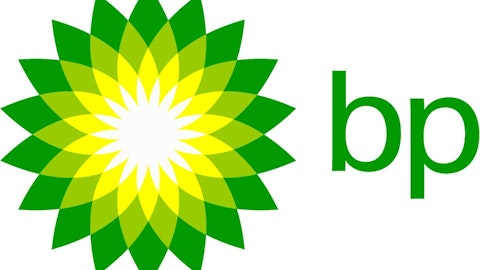TransCanada Corporation (USA) (NYSE:TRP)’s Keystone XL Pipeline is a controversial proposal because of environmental concerns. Regardless, TransCanada anticipates that President Obama will approve the project in 2013 and that the pipeline will be in service in 2015. With a transport capacity of 830,000 barrels of oil per day, refineries located in the right region could see a boost in profit margins.
In addition, the Keystone XL Pipeline is actually an expansion proposal.

The brown and the green segments on the map are already in operation. The southern leg of the expansion does not require an international permit and TransCanada started construction of the southern leg in August 2012. As shown on the map, the southern leg will connect Cushing to Nederland, Texas and eventually Houston. Also, the southern leg might be completed by the end of 2013.
Margin booster
Currently, WTI crude is trading at a discount relative to Brent crude. Historically, the two prices have followed each other closely. The US Energy Information Administration attributes the large spread to increases in Bakken crude oil production, which has resulted in transportation bottlenecks at Cushing, Oklahoma. Oil companies have resorted to transporting excess crude by rail and truck out of Cushing. The construction of the southern leg will provide refiners located near the Texas Gulf coast region with easier access to Cushing crude.

The companies that have a big portion of their refining operations in the region are Valero Energy Corporation (NYSE:VLO), Exxon Mobil Corporation (NYSE:XOM), Phillips 66 (NYSE:PSX), and Alon USA Energy, Inc. (NYSE:ALJ).
| Number of Gulf Coast Refineries | Capacity in the Region (thousand barrels per day) | |
| Valero Energy | 7 | 1545 |
| Exxon Mobil | 4 | 1641.5 |
| Phillips 66 | 3 | 733 |
| Alon USA Energy | 1 | 83 |
The refineries included in the table are in Texas or Louisiana and are located near the Gulf Coast. Alon USA Energy, Inc. (NYSE:ALJ) only has 83,000 barrels of capacity in the region, but the company’s total capacity is only 247,000 barrels per day.
Overall, the amount of boost in margins is debatable because completion of the southern leg of the pipeline would provide the oil exploration companies easier access to overseas markets. Supply and demand dictates that the price of Cushing crude would significantly increase due to the higher demand.
However, pipelines are the cheapest way to transport crude oil and the Gulf Coast refiners are closer than their overseas competition. In addition, the completion of the southern leg will provide easier access to Canadian oil sands. Oil sands are a heavy type of crude oil and heavy crude is the type that a lot of the Gulf Coast refineries are equipped for. The Valero refineries in the Gulf Coast region are equipped with hydrocrackers and two of Phillips 66 (NYSE:PSX)’s refineries in the region can also process heavy crude oil.
The bottom line
Out of the companies with refineries in the Gulf Coast region, Exxon Mobil Corporation (NYSE:XOM) has the most refining capacity. However, the majority of Exxon Mobil Corporation (NYSE:XOM)’s profits are from its upstream operations. In 2012, the company’s US downstream operations accounted for just 8% of the company’s earnings. Thus, any benefits of the Keystone expansion to Exxon Mobil Corporation (NYSE:XOM) will probably be minimal.
On the other hand Phillips 66 (NYSE:PSX), Valero, and Alon USA Energy, Inc. (NYSE:ALJ) generate the majority of their profits from refining. These companies should see improvements in margins in their Gulf Coast refineries when the southern leg of the Keystone pipeline is completed. The Keystone XL expansion, if constructed, will provide additional benefit.
Overall, easier access to Canadian oil sands and the glut of oil in Cushing should benefit these refiners. Valero, Phillips 66 (NYSE:PSX), and Alon USA Energy, Inc. (NYSE:ALJ) have PE ratios of just 10.8, 9.6, and 13.2, respectively, so the companies are potentially good investments. It should be noted that Phillips 66 (NYSE:PSX) has mid-continent refineries. These refineries might see a drop in margins when the southern expansion is completed.
Alvin Gonzales owns shares of Valero Energy. The Motley Fool has no position in any of the stocks mentioned.


